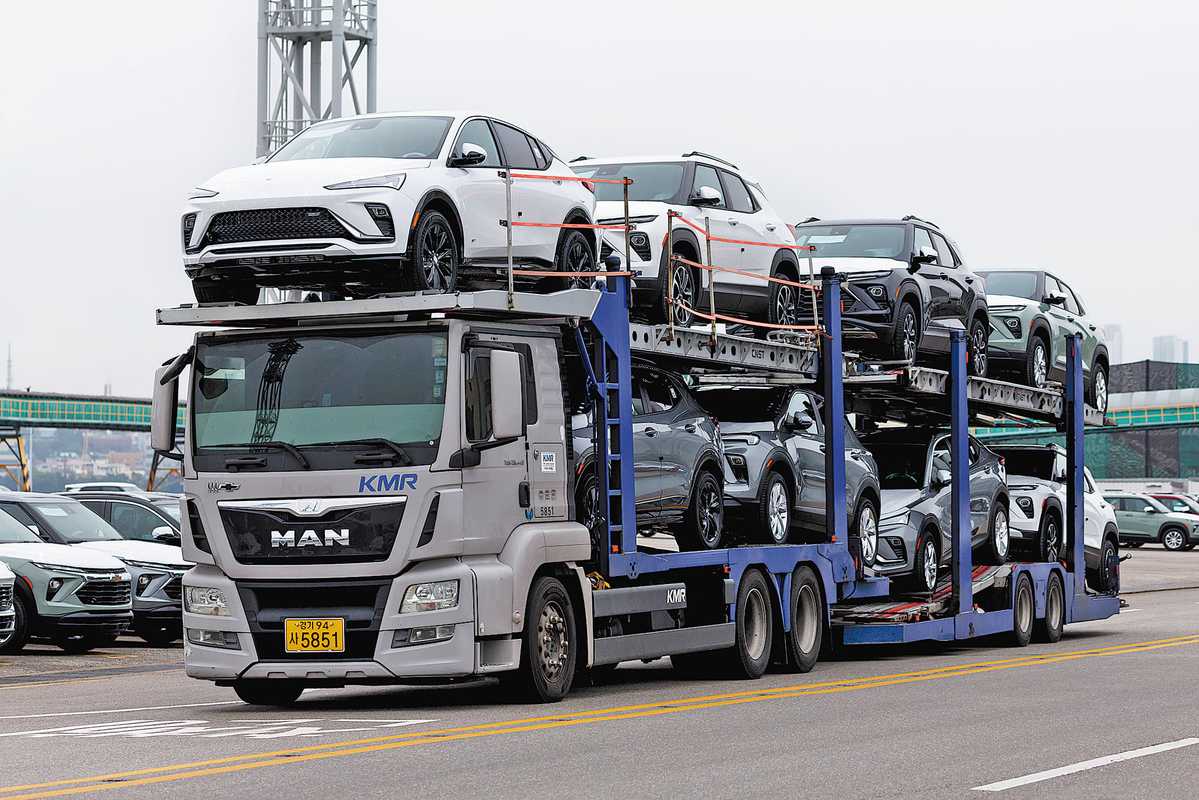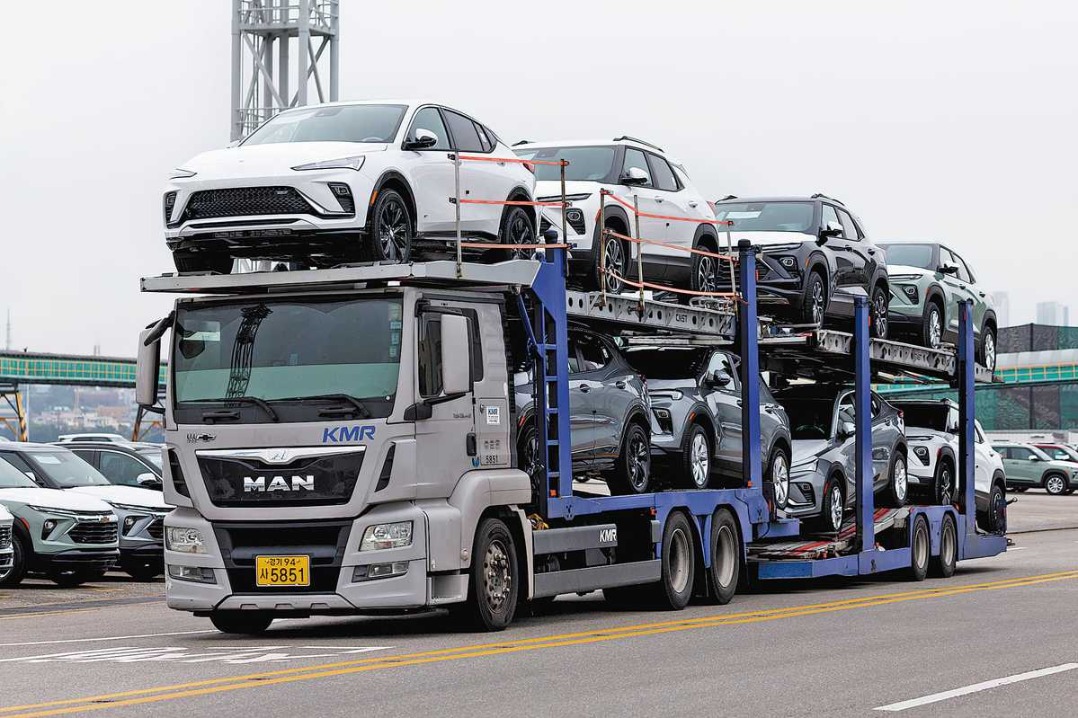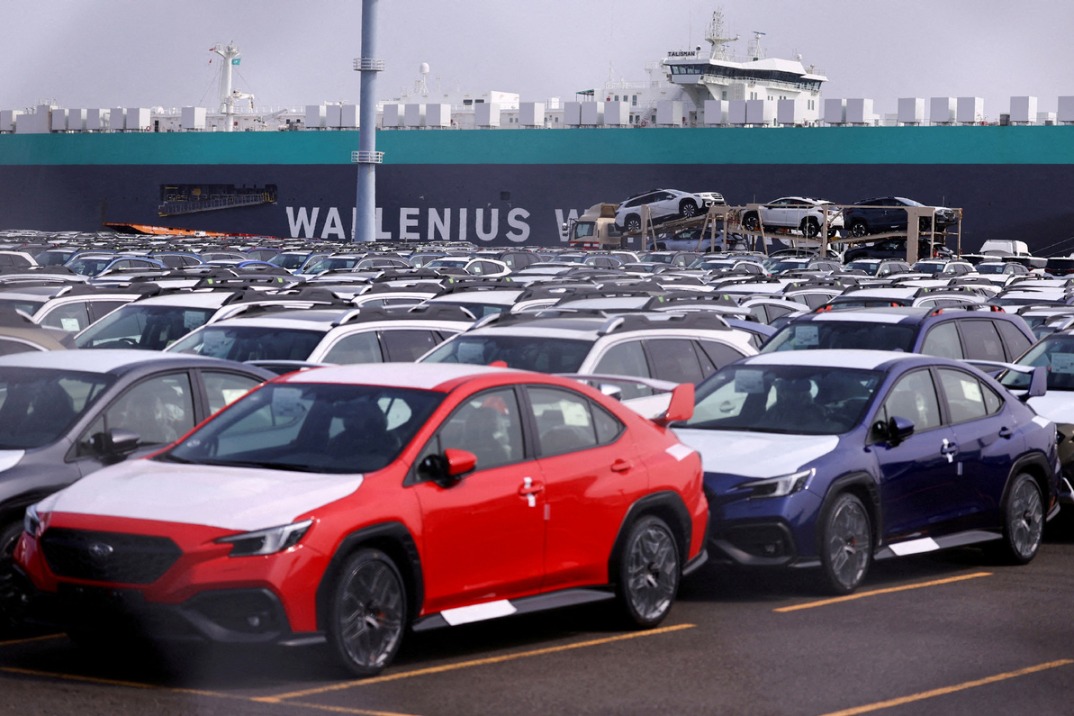South Korea's tariff-hit sectors to get more support


More support will be given to key sectors of the South Korean economy affected by the United States' tariffs, the government said in Seoul on Wednesday, even as the second round of technical discussions with Washington took off.
The Ministry of Economy and Finance announced an additional 28.6 trillion won ($20.61 billion) in policy finance to respond to tariff-related risks, including supporting business stabilization for affected companies, market diversification and facility investment aimed at strengthening industrial competitiveness.
"Immediately following the launch of the new US administration, the government proactively responded to potential tariff impacts by formulating an interministerial export strategy," the ministry said in a news release after a meeting chaired by acting Finance Minister Kim Beom-seok.
Measures were also taken to enhance the ecosystem of high-tech industries such as semiconductors, artificial intelligence and secondary batteries.
"All resources will be concentrated to minimize the impact of tariffs," said Kim, noting that the government will continue its support for affected industries, including steel and automobiles, as well as expand support for pharmaceutical and semiconductor sectors.
The support system, if rapidly institutionalized and continuously refined, will serve as a solid foundation for navigating global competition, Kim said.
South Korea is facing 25 percent "reciprocal tariffs" on its exports to the US, its second-largest export destination after China. Sectoral tariffs on various products such as automobiles, steel and aluminum were also announced by the US.
South Korea's exports to the US reached $127.8 billion in 2024, according to the Korea International Trade Association. The figure marked the highest annual tally on record.
On Tuesday, South Korea began the second round of technical discussions on tariffs and other trade issues with the US in Washington. The talks are set to conclude on Thursday, according to Yonhap News Agency.
Seoul has proposed to finalize a trade package before July 8, when the 90-day suspension of "reciprocal tariffs" ends. But the government said no agreement will be reached until the launch of a new administration after the snap presidential election on June 3.
Asia's fourth-largest economy has been working to ask the US to lower its tariffs, while the US is expected to demand more imports and lower nontariff barriers.
Amid ongoing tariff pressure, South Korea's exports dropped 2.4 percent to $31.97 billion in the first 20 days of May, with exports to the US falling by 14.6 percent compared with the same period last year, according to data released by the Korea Customs Service on Wednesday.
On the previous day, data from the Ministry of Trade, Industry and Energy showed that the country's automobile exports also recorded a year-on-year decrease of 3.8 percent to $6.54 billion. Shipments to the US were $2.89 billion, a sharp decline of 19.6 percent.
The impact of automobile tariffs on the operating profits of major South Korean automakers such as Hyundai Motor and Kia could reach up to 700 billion won per month this year, South Korean financial services company Kiwoom Securities said in a report on Tuesday.
"Even if (the companies) proactively stockpile inventory in the US, unless exports to the US are completely halted, the 25 percent tariff will inevitably apply during customs clearance for vehicles entering the US," the report said.
South Korean Trade Minister Cheong In-kyo said on Wednesday that the impact of the US tariff measures will be fully reflected in May, leading up to a decline in exports to the US and China.
kelly@chinadailyapac.com

































